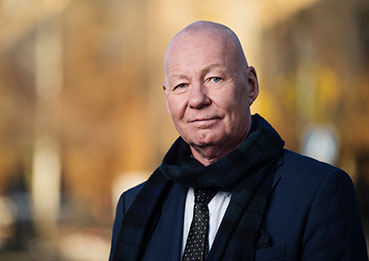At the same time, given the current geopolitical situation, there is a need for effective border control and rules that prevent permits to study or work in Sweden from being misused for criminal purposes and for illegal immigration into the country and Europe.
Over time, various regulations have been tightened to curb abuse, not least with regard to the rules for study permits. At times, there has been considerable frustration at universities about long processing times, and students have sometimes been unable to obtain residence permits in time for the start of the semester, despite having been admitted.
It is important to ensure that the right students, who have what is known as an intention to study, are properly admitted and can also go through the process of obtaining a residence permit. In recent years, the universities, through the SUHF, and the Swedish Migration Agency have worked intensively to jointly define problems and shortcomings and to address some obvious weaknesses in the system.
Recently, the universities and the Migration Agency have reached an agreement whereby the educational centres undertake to report interruptions in studies to the Migration Agency in a systematic and quality-assured manner. On this basis, the Migration Agency can now issue two-year residence permits to students instead of the previous one-year permits.This will reduce the number of cases and processing times, while giving students greater security during their studies.
This is very positive. At the same time, a number of other measures are being considered to improve opportunities for foreign students and workers. These include measures relating to the higher education sector and more general investigations into the immigration of skilled workers.
Another important area for foreign students is to have a reasonable chance of establishing themselves in the Swedish labour market after their studies. This requires both that companies and organisations recruit talent from this group of graduates and that regulations do not force graduates to leave too quickly.
If Sweden is to manage the supply of skills in the long term, we must be able to attract foreign students and employees to Sweden and not lose talent abroad. This is what internationalisation is all about!This is very positive. At the same time, investigations are under way into several other measures to improve opportunities for foreign students and employees. These include measures affecting the university sector and more generally oriented investigations into skilled labour immigration.
Another important area for foreign students is to have a reasonable opportunity to establish themselves in the Swedish labour market after their studies. This requires both that companies and organisations recruit talent from this group of graduates and that the regulations do not force graduates to leave too quickly.
If Sweden is to manage the supply of skills in the long term, we must be able to attract foreign students and employees to Sweden and not lose talent abroad. This is internationalisation for real!

